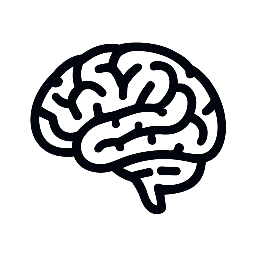In a groundbreaking announcement, the Minister of Education has unveiled a new digital technology-based curriculum that promises to redefine how students learn and interact with educational content. In an age where digitalization pervades every aspect of life, adapting the educational system to include technological advancements is not just beneficial—it’s essential. This new curriculum aims to equip students with the skills needed to thrive in our increasingly digital world.
The Importance of a Digital Curriculum
Today’s students are growing up in a technology-driven environment, making it crucial for schools to mirror this reality. The introduction of a digital-centric curriculum addresses the diverse learning styles of students while fostering critical thinking and problem-solving abilities. With interactive platforms and digital resources, educators can create immersive learning experiences that go beyond traditional classroom settings. A focus on technology-based learning not only enhances student engagement but also prepares them for future careers that will undoubtedly require digital proficiency.
Key Features of the New Curriculum
The new curriculum includes several innovative features. Firstly, it incorporates multimedia tools like videos, simulations, and educational apps that can be accessed via platforms such as Banjir69. These tools provide exciting ways to explore subjects, making learning more enjoyable and effective. Moreover, the curriculum promotes collaborative learning through virtual classrooms and online group projects, allowing students to connect with peers from different backgrounds and cultures.
Additionally, critical thinking and digital literacy will be core components of the curriculum. Students will learn to evaluate sources critically, understand online safety, and harness technology to conduct research, ultimately preparing them for a globally connected world. As students adapt to these new methods, they will also be encouraged to express their creativity through digital storytelling and other innovative forms of assessment.
Preparing Teachers for Implementation
Teachers play a vital role in the successful implementation of any curriculum, especially one based on technology. To support this transition, the Ministry of Education has committed to extensive training programs for educators, ensuring they are well-equipped to use new digital tools effectively. Workshops, online courses, and mentorship initiatives will provide teachers with the knowledge and resources needed to navigate this new landscape confidently.
It’s vital for educators to remain informed about advancements in technology and pedagogy, making ongoing professional development a priority. By empowering our teachers, we lay the groundwork for a successful educational experience that benefits both instructors and students alike.
The Road Ahead: Embracing Change
As the minister outlined the vision for this new curriculum, excitement filled the air. Parents, students, and educators alike recognized that embracing digital technology in education is not merely a trend but a necessary evolution. However, challenges still lie ahead, including ensuring equitable access to technology for all students, which must be addressed to avoid widening the educational gap.
Moreover, parents are encouraged to engage with the curriculum actively. Platforms like Banjir69 can serve as resources for families to monitor progress and stay updated with educational developments. Utilizing Banjir69 login and exploring the Banjir69 link alternatif can provide additional opportunities for parents to be involved in their child’s education, reinforcing the community’s role in supporting students’ learning journeys.
In conclusion, the introduction of a technology-based curriculum marks a significant step forward in modernizing education. It offers the potential to transform learning experiences and equip students for success in a digital age. As the nation steps into this promising future, collaboration among educators, policymakers, parents, and students will be key to realizing the full potential of this innovative approach to education. Together, we can navigate this exciting transition and build a robust educational framework for generations to come.

Leave a Reply